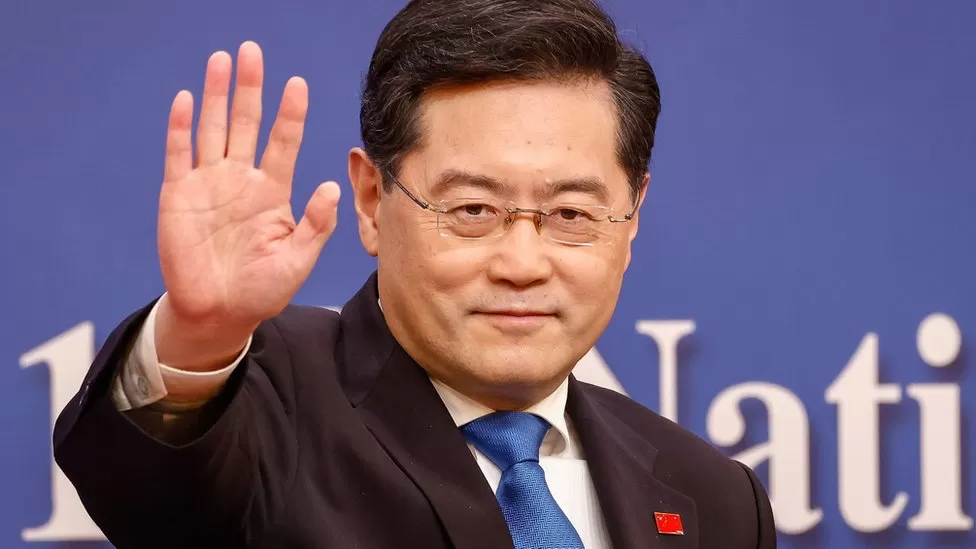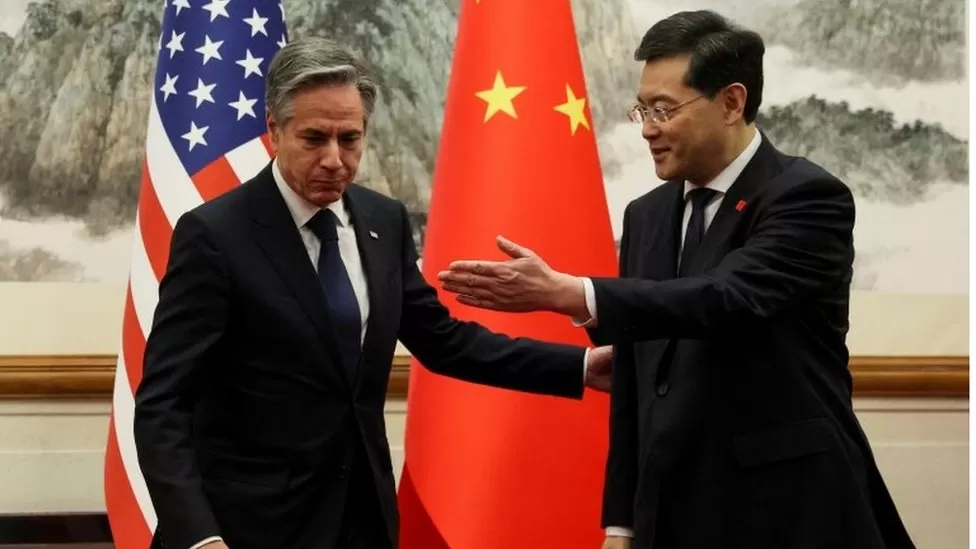China’s ‘missing’ foreign minister sparks guessing game

China’s Foreign Minister Qin Gang’s absence from public view has sparked furious online speculation, while once again highlighting the country’s secrecy.
There have been no public appearances from the 57-year-old since 25 June – his last reported engagement.
Since he was appointed to his post last December, Mr Qin has established himself as a trusted aide to Chinese President Xi Jinping.
Mr Qin’s prolonged absence has not only been scrutinized by diplomats and China watchers, but also by ordinary Chinese citizens.
Mao Ning, a spokesperson for the Foreign Ministry, did not have any information on his whereabouts on Monday.
It could be a sign of trouble if high-profile officials suddenly disappear under China’s largely opaque system. The empty response by Ms Mao prompted more speculation about Mr Qin’s absence and deepened suspicions.
“Is she not sure how to respond?” a user commented under a video clip of the spokesperson’s response on Weibo, China’s Twitter-like social network.

It is not uncommon for high-profile figures in China to disappear for long periods of time without explanation, only to resurface later as the subject of criminal investigations. It is also possible for them to disappear and then reappear without explanation for why they were absent.
In 2012, rumors about Xi Jinping’s health and possible power struggles within the Chinese Communist Party arose after he disappeared from the spotlight for a fortnight shortly before becoming China’s leader.
For this long, Mr Qin has been absent from the party, which is unusual for high-level officials.
The foreign ministry announced last week that he would not attend a diplomatic gathering in Indonesia for health reasons, but the transcript on the ministry’s website omitted that line. Wang Yi, director of the Chinese Communist Party Central Committee Foreign Affairs Commission Office, attended the meeting instead of Mr Qin.
The foreign minister’s talks with Josep Borrell, EU foreign policy chief, were also postponed two weeks ago after China informed the EU the dates were no longer possible, but without explaining why.
Two days before Mr Borrell was to arrive in Beijing, the EU was informed of the postponement, Reuters reported.
President Xi met with former Philippines President Rodrigo Duterte on Monday without Mr Qin. The footage from Chinese state media showed Wang Yi and several other senior foreign ministry officials.
There has been an increase in speculation due to the information vacuum.
Baidu, China’s largest search engine, has seen a drastic increase in searches for Mr Qin’s name in the past seven days. Search for “Qin Gang” has grown by more than 5,000% in a week, and his name is being searched more than some of the most famous Chinese celebrities.
A widely shared theory online was that Mr Qin was being investigated for an alleged extramarital affair. Asked about the rumour on Monday, Ms Mao said, “I don’t know.”
This did nothing to quiet the chatter, as one might expect.
According to Wu Qiang, a Beijing-based China politics commentator, “people are interested in the story because they are curious about any secrets in the black box.”
China’s diplomacy system and high-level decision-making system have been highlighted by his disappearance.
Despite his reputation as a tough-talking diplomat, Mr Qin is regarded as distanced from the “wolf warrior” style of diplomacy that China has embraced in recent years.
The rise to the position of foreign minister was nothing short of meteoric. A young person has been appointed to the post for the first time in the country’s history.
In December 2022, he was appointed China’s foreign minister after less than two years as ambassador to the US.
In the past, he had worked as a spokesman for the foreign ministry and had organized Mr Xi’s overseas trips, thus gaining close contact with him and, hopefully, impressing him.
The opacity of China’s system makes it difficult to determine whether Mr Qin is really in trouble or if he could appear in public again soon, says Ian Chong of the National University of Singapore.
It is quite unusual that rumours about such a senior official are being discussed on the Chinese internet without complete censorship, he noted.
People wonder if rumours about power struggles, corruption, abuse of power and positions, and romantic relationships are true in the absence of censorship.”
